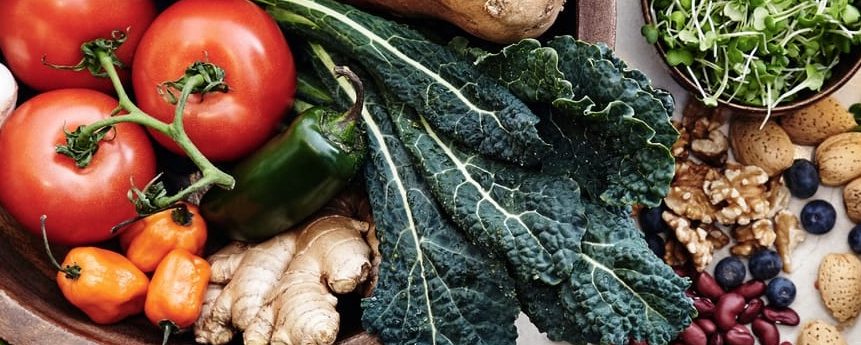Hearing talk about improving biodiversity and bug life one could assume we are discussing gardening techniques. But few people realise we have our own 'internal garden' that needs to be cultivated and maintained.
It's larger on the inside
Your small and large intestine is an enormous space which stretched out would be around the size of a tennis court. Living in this space are more bacteria than there are cells in the body, our own personal Galaxy known as our 'microbiome' is some 1100 species. We live in a symbiotic relationship with our microbiome and as such need to ensure they are as happy and healthy as we would like to be.
What are they doing there?
They help control our use and storage of energy, some species extract more energy from our food than others. Some ferment fibre, producing short chain fatty acids (proprionate, butyrate) and regulate the pH of our gut, and they help produce B vitamins, folate and vitamin K. Our gut bacteria can also produce 'signal molecules' that prime and regulate our immune system, hormone responses and even the expression of our genes.
What do they live on?
A varied, high fibre, high nutrient diet promotes a healthy microbiome whereas a high fat, high sugar, and low fibre diet was shown to increase pathogenic bacteria, decreasing the abundance of protective bacteria, an imbalance known as 'dysbiosis' . Even short term changes in diet can affect the make-up of our microbiome.
How does this affect me?
Breakdown products of these pathogenic bacteria may promote inflammation and tissue damage to the gut lining leading to 'leaky gut' . This imbalance of microflora can cause inflammation affecting nutrient absorption, immune signalling and hormone balance :
- Nutrient absorption: the intestinal barrier allows normal passage of macro molecules from our food; proteins, carbohydrates and fats, as well as micronutrients such as; zinc, iron and B vitamins. A breakdown in the ' tight junctions ' between the cells lining our gut wall means that molecules don't pass though in the normal way so that we are not able to use them as we should, often causing an inappropriate immune response.
- Immune signalling: Immune cells recognise molecules passing through the gut lining and either tolerate or mount an immune response to possible invading pathogens
- Hormone balance: Crucially immune cells can signal a hormone response. Imbalances in hormone responses may lead to obesity, insulin sensitivity, diabetes or other chronic diseases.
How can I support my microbiome?
Ensure your diet and lifestyle are keeping your microbiome happy.
- Eat rainbow of whole vegetables to give them lots of fibre and nutrients including zinc, magnesium, calcium and selenium.
- Lots of ' prebiotic' foods to help create the right environment providing fuel to help the right bacteria to grow; include leeks, celery, artichokes, onions and garlic in your diet.
- Probiotics and fermented foods may also help to repopulate with non-pathogenic bacteria; include plain yogurts, kefir, kimchi, kombocha, live vinegars or look for other fermented products with live cultures.
Biodiversity
So the gut is like the garden of our body, plant the right species in the right place and provide the right nutrients to promote biodiversity and everything in the garden will be lovely.
©Carolyn Holmes
